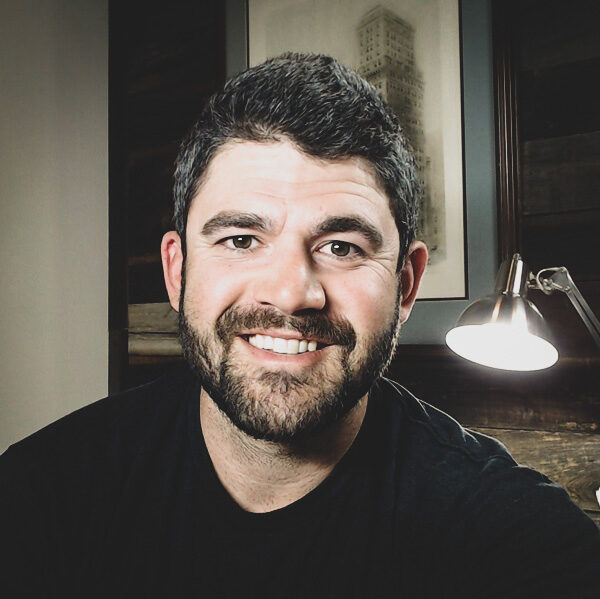
Process = Profit!
RIghtWay Tax Solutions has experienced tremendous growth in a short period of time and with that comes the challenges of scaling without sacrificing those things which contributed to their success. In this article RIghtWay President & Co-founder, Jeremy Duncan discusses the necessity for standardized processes and how process drives profits.
Streamline your workflow
Tax season is incredibly short and hectic. The absence of standardized processes leads to inconsistent results, potentially bad customer experience and to some degree, chaos.
“In business and in life, the need for you to be a 'hero' is an indicator of a broken process.”
Jeremy Duncan
President & Co-founder, RightWay Tax Solutions
If you walk into the office every day, put on your cape, and fly around extinguishing 1,000 fires, you probably have some major process issues that need addressing.

Have you ever had a nail/something poke a hole in your vehicles tire? A small hole that creates a slow leak? Instead of getting it fixed right away, every 3-5 days you pull into a gas station and fill the tire up. After a month of that nonsense, you’re finally fed up and get it repaired? Well, the absence of standardized processes in your business is kind of like that. Instead of leaking air, you are leaking money in the form of time, organization, lost opportunity, etc. Business people call that “bleeding cash”!
In a tax office and business in general, everything can and should be standardized! From answering the phone, hiring decisions, office attire, customer greeting, folder organization, document storage, due diligence notes, etc. everything should be uniform.
3 P’s - People, Product and Process!
Marcus Lemonis from the hit CNBC Television show The Profit lives by the 3 P’s.
- People – You have to have good people.
- Product- You must have a good product that solves a need.
- Process- Your process must be efficient, as simple as possible, scalable and standardized.
We believe there are other P’s that are also important, such as Passion, Persistence, Purpose, etc. but Process is a biggie.
Process
Our company mindset is process = Profit. The objective is to make things simple. Simplicity translates to efficiency and efficiency should translates to profitability.
However, making complex tasks simple is not easy. It requires thought, consideration, planning and commitment.
Companies are really just a series of systems and processes where people and technology interact to deliver a product or service. Look at Amazon, it is almost magical what they do! You click a couple of buttons on your phone or computer and 24 hours later the product you ordered shows up at your door?! It’s crazy how good they are at what they do. They just have really, really, really good processes!
You may not become the next Jeff Bezos but we can sure learn a lot from him!
Steps to building a process
Here’s a window into our RightWay’s process for creating a process. Yes, we have a process for creating a process. We subscribe to the K.I.S.S principle. Better known as, Keep It Simple Stupid.
Generally speaking, new processes are created in response to a new initiative or the identification of a potential future problem.
Where do you start? We write a brief summary of the objective, problem or opportunity. Once the executive team has estimated time, money and effort requirements… we follow these steps.

- Define your goal - What is the purpose of the process? Why was it created? What metrics are we tracking/reporting on to gauge/define success?
- Map out the process - What specifics steps will personnel take to follow the process? Depending on what we are trying to achieve, this could take days or weeks.
- Assign responsibilities - In the construction phase, who is going to be responsible for each step of the build? Depending on the size of your business, you (the business owner) may be the general contractor, the architect and the plumber but if you have staff, make sure everyone clearly understands what they are responsible for.
- Get Buy In - You must get “buy in” from your team to ensure adherence to whatever it is. For any “new” process to be a success, all the members must believe in the why!
Note: We have found that sharing with your team the reasoning/logic/data behind the need for the process creates a “we can do this” attitude vs. a “we have to do this” mind set.
- Test the Process - Put it into action. Have 1 or 2 of your key personnel utilize the process for a day, week, month or however long to ensure that it works.
- Implement the process - After your test phase is complete, train the remaining staff on the why, when and how of the new process.
- Monitor and Modify - Now comes the fun part. Track the effectiveness of the new process and find ways to make it even better. Attempt to assign value ($$$) in the form of cost savings or revenue creation.
- Institute - Put the process in stone! No wavering or exceptions to the process being followed
- Repeat

What to consider when building your process
- Is it scalable – Will the process continue to work if I have 5-50 preparers or 200-2,000 clients or grow from 1-10 locations? Will the process hold up?
- Terminable – Does the process have a clear flow from beginning to end?
- Measurable result - Does the process have the intended result? Does it save time, improve my customer experience, limit my liability or make us more money?
If you can answer yes to the above 3 questions, congratulations! You’ve got a winner of a process!
Here are some things you should have processes created for.
- Hiring and firing employees
- Training preparers
- Answering the phone and responding to customer questions and complaints
- Documentation gathering and storage
- EITC, Schedule-C, Education Credit, Filing Status, Dependent Claim Due Diligence Documentation
- Tracking Employee Revenue Production

Hey, my name is Jeremy Duncan, and I am the Co-founder and President of RightWay Tax Solutions. Our company mission is to help entrepreneurs execute their vision through process improvement, idea execution, rockstar service/support and really good tax software.

